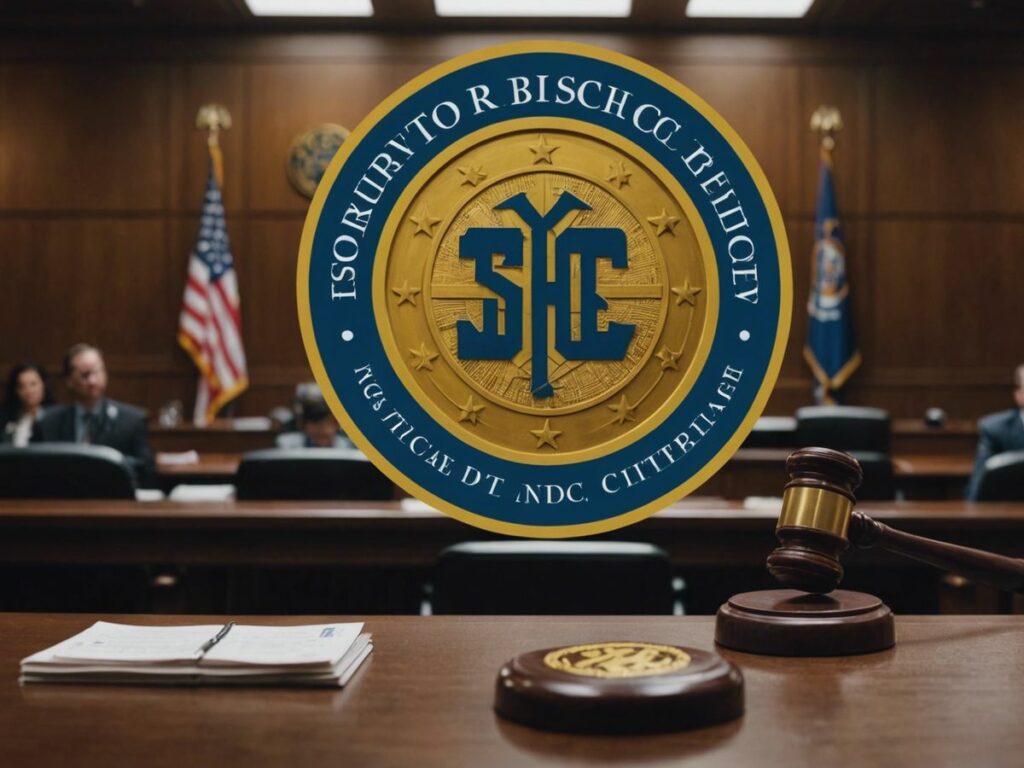In 2023, the U.S. Securities and Exchange Commission (SEC) initiated lawsuits against the world’s three largest cryptocurrency exchanges—Binance, Coinbase, and Kraken—marking a significant shift in the regulatory landscape for the crypto industry. These legal actions could reshape the future of digital currencies and their trading platforms.
Key Takeaways
- The SEC has accused Binance, Coinbase, and Kraken of operating unregistered securities exchanges.
- Binance faces additional allegations of misusing customer funds and engaging in wash trading.
- The lawsuits have led to significant market reactions, including large withdrawals from Binance and a drop in Coinbase’s stock price.
- The outcome of these lawsuits could set a precedent for how cryptocurrencies are regulated in the U.S.
SEC vs. Binance: Serious Allegations
On June 5, 2023, the SEC filed a lawsuit against Binance, accusing the exchange of several violations, including running an unregistered exchange, selling Binance-owned cryptocurrencies BNB and BUSD, and misrepresenting investor protection controls. The SEC also alleged that Binance used customer funds for its own interests and engaged in wash trading to inflate trading volumes.
The lawsuit has not been resolved as of late November 2023. Binance has responded by filing a motion to dismiss the case. The exchange also agreed to pay a $4.3 billion fine to settle charges from the U.S. Department of Justice (DoJ), Commodity Futures Trading Commission (CFTC), and Financial Crimes Enforcement Network (FinCEN). This settlement led to the resignation of Binance CEO Changpeng Zhao, with Richard Teng taking over the role.
SEC vs. Kraken: Commingling Complaints
On November 20, 2023, the SEC filed a complaint against Kraken, accusing the exchange of operating as an unregistered securities exchange, broker, dealer, and clearing agency. The SEC also alleged that Kraken commingled customer funds for operating expenses, posing a significant risk to its customers. Kraken has denied the charges and intends to defend itself in court.
SEC vs. Coinbase: Compliance Issues
A day after filing the lawsuit against Binance, the SEC charged Coinbase with operating as an unregistered securities exchange, broker, and clearing agency. The SEC criticized Coinbase’s staking-as-a-service program and its marketing campaigns that positioned the exchange as compliant with regulations. Coinbase has responded by filing a motion to dismiss the lawsuit and has criticized the SEC for not providing clear guidelines on which cryptocurrencies are considered securities.
Market Reactions
The cryptocurrency market has shown resilience despite the SEC’s actions. Bitcoin (BTC) and Ether (ETH) quickly rebounded from initial sell-offs. However, cryptocurrencies identified as securities by the SEC, such as BNB, ADA, SOL, MATIC, and ATOM, experienced selling pressure. Data firm Nansen reported that Binance users withdrew over $3 billion within 24 hours of the SEC lawsuit.
Future of the Crypto Industry
The outcome of these lawsuits could significantly impact the future of the crypto industry. Experts suggest that U.S. centralized exchanges might only list Bitcoin and Ether while international exchanges could list other tokens. There is also a growing preference within the industry for cryptocurrencies to be regulated by the CFTC rather than the SEC. The crypto industry is lobbying for cryptocurrencies to be classified as commodities, which would allow for less stringent regulatory requirements.
Understanding the SEC’s Concerns
The SEC aims to regulate cryptocurrencies similarly to how it regulates the stock market, ensuring that crypto companies provide truthful information and protect investors. However, the lack of specific regulations for cryptocurrencies has led to legal challenges. The SEC’s actions against Binance, Coinbase, and Kraken highlight its intent to bring the crypto industry under its regulatory umbrella.
Conclusion: Inevitable Regulations
Cryptocurrency regulation appears inevitable, but there is hope that the U.S. will provide a fair regulatory environment. Unlike China, which implemented a blanket ban on crypto activities, the U.S. might offer clearer guidelines that could help crypto exchanges emerge stronger and more secure.
The SEC’s actions against Binance, Coinbase, and Kraken are a pivotal moment for the crypto industry. The outcome of these lawsuits will likely shape the future of cryptocurrency regulation in the U.S. and potentially worldwide.
Sources
- SEC vs Binance, Coinbase, Kraken Lawsuits Usher Tough New Era, Techopedia.
- Binance, Coinbase head to court; the SEC labels 67 crypto-securities, Cointelegraph.
- The SEC Comes for Crypto – Bloomberg, Bloomberg.

